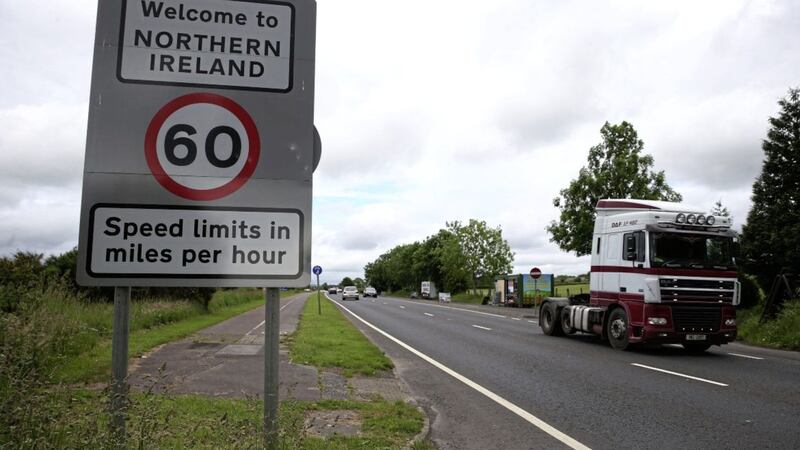BREXIT poses deep risks to the terms of the Good Friday Agreement, an academic report has found.
Experts from Queen's University Belfast presented the findings of their study in Brussels yesterday.
The report focused on the cross border elements of the agreement and its intent to foster enhanced co-operation between the UK and Ireland.
It said much of that was predicated on both countries being members of the EU.
The study was commissioned by the European Parliament's Policy Department for Citizens' Rights and Constitutional Affairs.
Co author of the report Professor David Phinnemore said "flexibility and compromise" was needed on all sides of the Brexit debate to mitigate the risks to the 1998 accord.
"This substantial report identifies the challenges that Brexit poses for the Good Friday agreement and hence why the Northern Ireland/Ireland dimension to Brexit has gained such prominence in phase one of the UK's withdrawal negotiations," he said.
"The effects of the UK's withdrawal from the EU extend to so much more than customs and trade arrangements."
The academic said Brexit potentially meant wide-ranging divergence between the UK and Ireland in law, trade, security, rights, policies and politics. He said this put the agreement at risk of "deep fissures".
Co-author Dr Kate Hayward said: "Any 'hardening' of the Irish border is not just a practical impediment to co-operation and economic growth but also an obstruction to the effective implementation of the agreement."
She warned the danger posed by Brexit to the agreement arose partly from the way the debate about it was being handled.
"The constitutional status of Northern Ireland is not in dispute here, but its economic welfare and security is most certainly in jeopardy if politicians continue to frame the discussion as an either/or choice between Ireland and the UK," she said.
Meanwhile, the Taoiseach must block progress of the Brexit negotiations next month if the UK fails to give a formal written guarantee that there will be no hard border with Northern Ireland, Sinn Fein leader Gerry Adams has said.
With a pre-Christmas election now averted, Leo Varadkar's focus will be firmly on crucial Brexit negotiations in Brussels on December 14 and 15.
British prime minister Theresa May has rejected Mr Varadkar's demands for written commitments before trade talks begin to avoid checks on the Irish border, even if it that means Northern Ireland continues to apply EU trade rules while Britain diverges.
This has prompted Mr Varadkar to threaten to veto the start of trade talks at the summit.
Mr Adams said yesterday that Mr Varadkar must use the veto.
"Brexit in British Tory terms is bad for every single person on this island and bad for the economy," the outgoing Sinn Féin president said.
Hopes of progress in Brexit talks at next month's crunch summit have been heightened by reports that a deal has been reached on the so-called divorce bill.
Reports suggested an agreement in principle has been reached which would see Theresa May increase her offer and pay between £40 and £49 billion (45-55 billion euro).
But British sources said they did not recognise the figure and stressed that talks were ongoing in Brussels.








